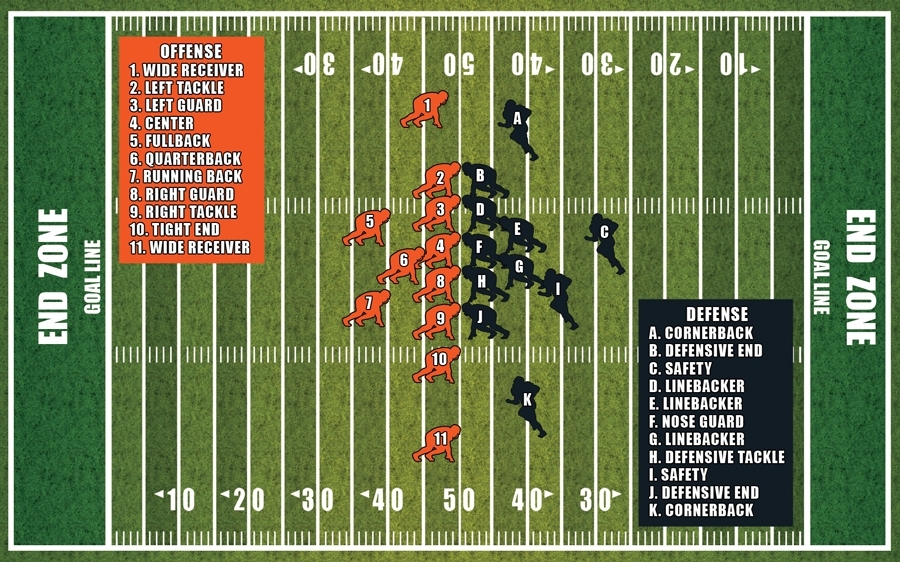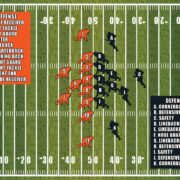
EDITOR’S Note: With Super Bowl LIII between the Los Angeles Rams and New England Patriots this upcoming Sunday, February 3, the Asian Journal is repurposing its handy guide to one of the biggest sports events of the year.
This year’s game will take place at Mercedes-Benz Stadium in Atlanta (kick off at 6:30 p.m. EST), being the first Super Bowl to be held at the new stadium. Sunday will mark the third time Atlanta will play host to the game.
Before you head to a Super Bowl party on Sunday, learn and brush up on football lingo.
Object of the game: To outscore the opposing team.
TERMS
Down: A period of action that begins as soon as the ball is put into play and ends when the ball is ruled dead, when a player is tackled or if the ball goes out of bounds. The offensive team is given four downs to advance the ball 10 yards. Should it fail to do this, the offense must surrender the ball to the defensive team, which it typically does by punting on the final down.
Fumble: The act of losing possession of the ball while running before a tackle or score occurs. Members of both teams can recover a tackle. Should the defense obtain the ball, it is called a turnover. A fumble can also occur if a reciever loses the ball after a catch.
Interception: A pass made by the offensive team that is caught by the defensive player. This ends the offense’s possession of the ball.
Kick off: An action that occurs at the beginning of the first and third periods, and after each successful field goal and touchdown. It involves the “kicking team” kicking the ball to the “receiving team.”
Punt: A kick in which a player drops the ball from their hands and kicks it before it hits the ground. This kick typically occurs on the fourth down when the offense has failed to advance the ball 10 yards. Although the offense can choose to attempt to advance the ball again, by punting, the opponent is likely to start farther up the field than they otherwise would.
Snap: The action when the center tosses the ball backward between the legs to the quarterback, marking the start of a play.
Tackle: The act of stopping a player in possession of the ball by seizing and throwing them to the ground.
How the game works
A football game consists of four 15-minute quarters with a 12-minute halftime break between the second and third periods.
Before a game begins, the captains from both teams meet with the referee at the center of the field for a coin toss. The winner of the coin toss gets to decide to start the game by either kicking the ball to the other team or receiving the kick off from their opponent.
Once the kick off happens, the game begins.
The team receiving the ball must try to bring it as far back toward the kicking team as possible and get it into their end zone. This is done most commonly by running with the ball either by carrying it and running. Although this yields less yardage, advancing the ball this way reduces the risk of accidentally turning over the ball to the other team.
The team in possession of the ball has four opportunities called “downs” to advance the ball 10 yards. If it succeeds, it gets another four downs to advance it another 10 yards. If it fails, it must surrender possession of the ball to the other team.
Once the team in possession of the ball manages to bring the ball to the end zone of the opposing team, it has the opportunity to score an additional point or two by opting for an extra point or two-point conversion.
At the end of the game, the team with the most points wins.
How to score
Touchdown (6 points): Scoring a touchdown is achieved when a player in possession of the ball crosses the opposing team’s goal line into the end zone.
Field goal (3 points): A field goal is scored when the ball is kicked anywhere on the field, though it is typically attempted within 40 yards of the goalpost. For the field goal to be deemed good, the kicked ball must go above the crossbar and between the uprights of the goalpost.
Two-point conversion (2 points): At the end of a touchdown, the offensive team can attempt a two-point conversion by lining up on the defense’s two-yard line and advance the ball the same way it would to score a touchdown. If the team succeeds, it receives two points in addition to the six points for the touchdown.
Safety (2 points): This occurs when the defense tackles an offensive player in possession of the ball in the offense’s end zone.
Extra point conversion (1 point): At the end of a touchdown, the offensive team can attempt a one-point conversion by kicking the ball through the uprights of the goalpost, the same way done in a field goal. In the NFL, the ball is snapped from the 15-yard line. (With reports from Agnes Constante/AJPress)







